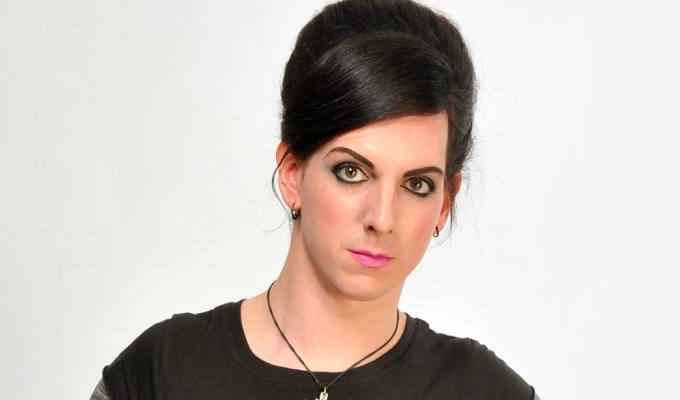
Billy Connolly's Big Banana Feet
Review of the newly restored 1976 documentary
Rarely seen and recently restored, this compelling fly-on-the-wall film following Billy Connolly on tour in Dublin and Belfast in 1975 is a fascinating snapshot of the Big Yin in the afterglow of his career-defining appearance on Michael Parkinson's chat show.
Shot over two days, but slow and reflective by modern filmmaking standards, the documentary takes place to a large degree in dingy dressing rooms and backstage corridors. With Connolly performing in a black leotard against a black backdrop and only his luxuriant beard and mane, guitar and the outsize yellow boots from which the documentary takes its name visible. There are no cutaway shots of the crowds, with the cameras trained unrelentingly on their subject.
Even darker is the sectarian backdrop. Signing autographs and sharing a joke with young British squaddies on the airport tarmac, he mocks the army at the Dublin gig yet sympathises with the working-class soldiers, conned into signing up by misleading adverts promising adventure. When a heckler shouts out 'IRA!', he's visibly irritated, challenging the disruptor to step out of the dark and repeat himself, either in the room or at Ibrox stadium in Glasgow.
Unshaken, he explains to a journalist afterwards: 'If I've got a microphone and I'm sober, I should beat them every time.' Yet he refrains from repeating the Troubles material in Ulster, reasoning that the audience are immersed in it and have had enough of that horror, though he nimbly ad-libs around a gift thrown on stage for him. Belfast has been starved of this, a man enthuses as the crowd file out at the end.
Journalists, both Irish and English, follow him everywhere as an object of exotic fascination. And it's telling about where he is in his career that his plea to meet them after, rather than before the first show, so they can better understand what he does, is shown as denied with a rare, wryly arch edit from director Murray Grigor, who generally tries to be less intrusive than his fellow media.
The giving and taking of offence in comedy is, as ever, the press’s main preoccupation. And Connolly is thoughtful but uninhibited on the subject, both onstage and off, taking the charges of blasphemy against him and reflecting on Kenneth Tynan's radical uttering of 'fuck' on the BBC earlier that year, highlighting the hypocrisy that lurks behind the piety in gleefully boundary-pushing routine and in song. Not for edginess' sake but rather to agitate for a communal acknowledgment that these are familiar human urges and bodily functions, universally experienced.
For anyone more familiar with latter Connolly, the greater role that music plays in the transitioned folk singer's repertoire is striking, the guitar and banjo tunes better suited to this film showcase than the still-evolving shaggy dog stories. Simply chatting to the crowd while tuning up, he's unhurried and in total control, displaying the same recognisable, easy charisma that he's always seemed to possess.
He's clearly knackered for almost the entirety of the shoot, shown decompressing in a pub and fully asleep in a cafe. Yet he charms the soldiers and the venue staff bringing him endless cups of tea. He's respectful of the journalists but wary of becoming a caricature in their assessment, having already fallen foul of the papers in his native Scotland.
There's some familiar material on the rapid-fire Glaswegian capacity for swearing and the 'rubber men' drunks of that city, acted out with some jelly-legged staggers. But the abiding routine is his memories of school, as from the grubby stuff of bogies and farts he conjures delightfully whimsical, visually poetic nostalgia that gleams still amidst the bleakly grim shabbiness of mid-seventies, war-zone Belfast.
• Billy Connolly's Big Banana Feet is being screened at the Glasgow Film Festival on Sunday and Monday, though the events are sold out. It will then play selected cinemas from March 20, before its release on DVD and Blu-ray on May 20, when it will also be screened at the BFI Southbank in London, followed by a Q&A with director Murray Grigor.
Review date: 1 Mar 2024
Reviewed by: Jay Richardson









